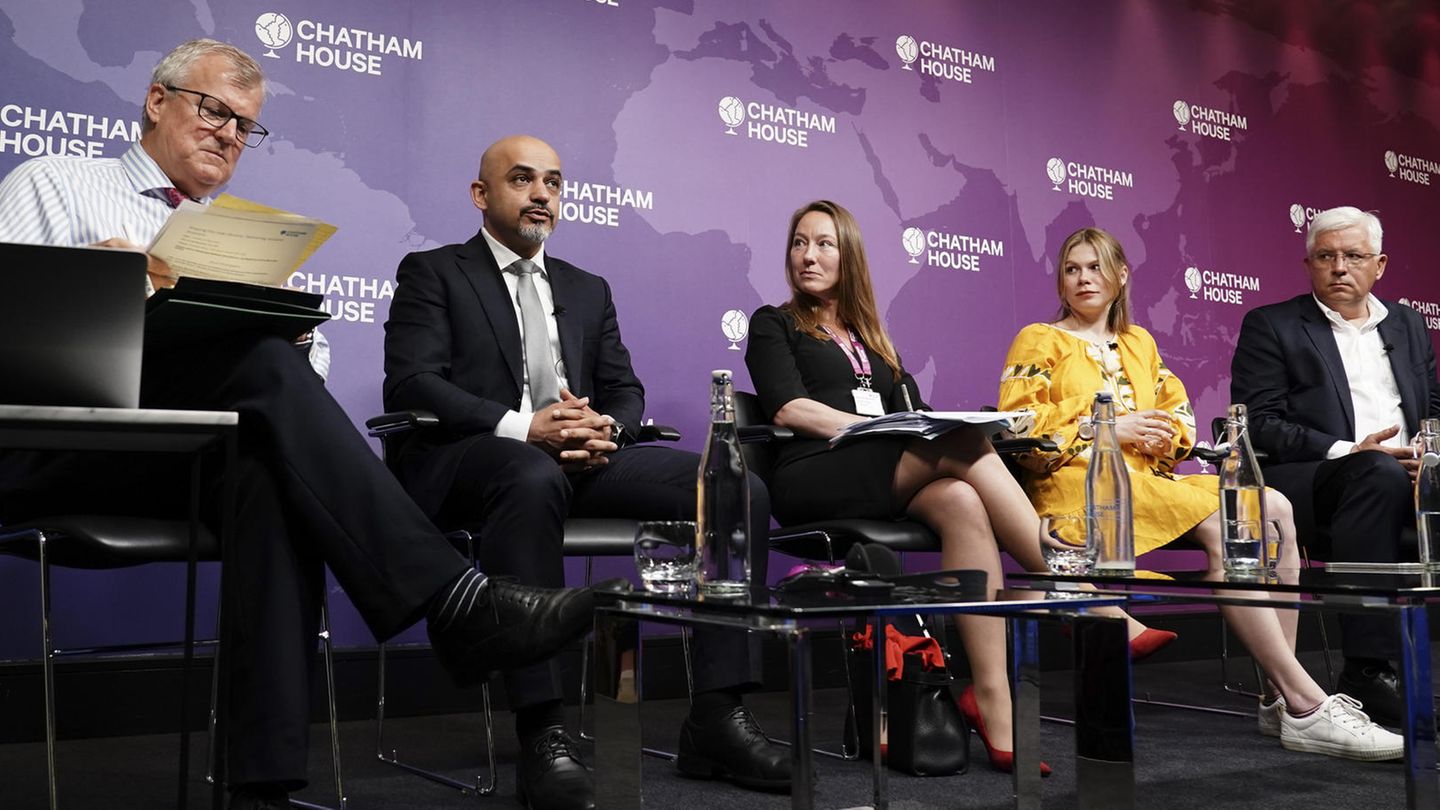Mustafa Najjem is considered an icon of the pro-European movement in Ukraine and one of the most honest politicians in the country: Now the head of the reconstruction agency has resigned from his post – shortly before the start of the Ukraine conference in Berlin.

This is original content from the Capital brand. This article will be available for ten days on stern.de. After that, you will find it exclusively on capital.de. Capital, like the star to RTL Germany.
It’s a bang right from the start: on the eve of the conference on the reconstruction of Ukraine in Berlin, the head of the Ukrainian agency responsible for this area, Mustafa Najjem, resigned. “I made this decision independently,” he said. “The reason was systemic resistance that prevented me from effectively fulfilling my duties. I thank everyone for their support and work!”
For the Ukrainian leadership under President Volodymyr Zelensky, Nayem’s resignation is an unpleasant signal at an extremely inopportune time. The Afghan-born man is a legend in Ukraine and is considered a symbol of integrity.
As a correspondent for the newspaper Ukrainska Pravda, Najjem had previously uncovered numerous scandals and campaigned vehemently against the censorship under then-President Viktor Yanukovych. With a Facebook post in November 2013, he played a key role in the mass protests on the Maidan in Kyiv against Yanukovych and his anti-European policies. During the country’s subsequent orientation towards the West, Najjem was also a member of parliament for a while.
Criticism of donor countries
A few days before his resignation, Najjem gave an interview to Capital in which he described the problems of reconstruction, which is already taking place amidst the ongoing war. “It’s about doing what we can now to help people continue their lives,” said Najjem, whose brother is fighting on the front lines. “We are in the survival phase. We have to create conditions that allow us to fight the war and win.”
In the region of the large Kakhovka dam, which was presumably destroyed by Russian troops, Najjem’s agency ensured that the residents affected by the floods received help in a short time. “We have provided 1.5 million people with access to drinking water,” said Najjem. “We managed that in record time.” However, the agency head also spoke of “politics, self-interest and corruption” that repeatedly get in the way of his work. A few weeks ago, Najjem made public that a Ukrainian MP had tried to bribe him.
Dispute with authorities
Najjem explained the reasons for his resignation in a letter: “Since November last year, the agency’s team has been faced with constant resistance and the creation of artificial obstacles,” he wrote. Among other things, funds were not passed on under incomprehensible conditions. The authorities also refused to approve construction projects in several cases. “All of this has consequences that I have already officially reported on several times. Late payments for contractors’ work undermine trust in the state; delays in financing slow down construction work and even bring it to a complete standstill in some areas, leading to a loss of trust in the market, local authorities and citizens,” said Najjem.
However, in his conversation with Capital, the agency head also criticized donor countries and international aid institutions such as the European Investment Bank and the World Bank. “You can’t treat Ukraine the way you treat a European country because it is not ready yet and is still at war,” he said. “You can’t be as slow and bureaucratic as in these countries. They have time and they have the luxury of being able to plan everything. We don’t have that.”
Lack of staff
Najjem sees a problem in particular in the obligations to transparency and accountability, which in his view slow down the processes and are not suitable for a country at war: “It is still as slow as before the war, these procedures are not being changed.” In addition, his agency lacks the people to plan and implement the ongoing reconstruction. “We definitely have a shortage of workers. Many people who are now on the front lines could actually be employed in the construction sector.”
As for the future of Ukraine, Najjem sees his country at a crossroads between moving towards Afghanistan or South Korea. The path the country takes depends to a large extent on the EU and the USA. “We have planned for our country, but it is obvious that we will not survive alone,” he said. However, the people of Ukraine are ready for change. “The new generation will be more mature and the country’s problems will be resolved much faster. We will have more experience and much more potential.”
Source: Stern




